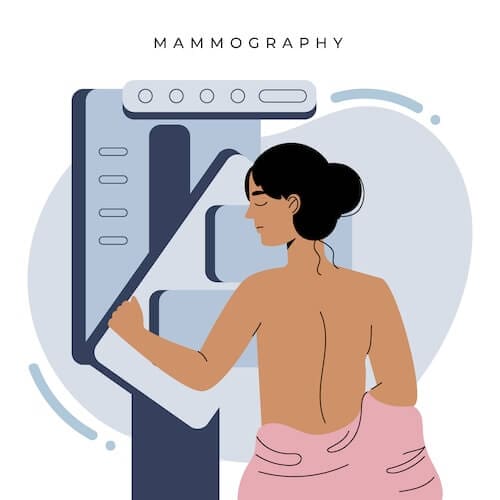After extensive analysis and debate, the US Preventative Services Task Force has released its final breast cancer screening recommendations, suggesting that all women now get screened for breast cancer every other year, starting at age 40 and continuing through age 74, to reduce their risk of dying from this disease.
The USPSTF also urgently calls for more research that will allow it to build on our existing guidance and help all women live longer and healthier lives.
Need to address health disparities in breast cancer screening
Specifically, the Task Force is looking at how best to address health disparities across screening and treatment experienced by Black, Hispanic, Latina, Asian, Pacific Islander, Native American, and Alaska Native women. They also need studies on what more should be done for women with dense breasts, and we need evidence on the benefits and harms of screening in older women.
The news that screening will now begin at 40 years of age versus 50 was welcomed by the breast cancer community. Studies show that women are now developing breast cancer at an earlier age. Screening earlier will help doctors catch the disease earlier, hopefully preventing progression to a more advanced stage.
Breast cancer screening every two years is not enough
That said, the community is not happy with the USPSTF’s decision to screen every two years versus annually. My personal opinion only, but this is likely an economic decision. Screening women annually costs money. It requires more equipment, more radiation technologists, more healthcare resources. I suspect that the current healthcare system simply isn’t equipped to handle the volume annual screening would require. The difficult pill to swallow is that if a woman has a more aggressive or higher grade of breast cancer, screening every two years will mean women will progress to a later stage.
I’ll use my own example as an illustration. As detailed in my book Flat Please, in 2019, I had an “unremarkable” mammogram and was fully cleared as healthy. Two years later almost to the month, I was diagnosed with multi-focal grade 2 cancer of the left breast, with the largest tumor measuring 4.5 cm at the time of surgery. I will always wonder if I had gone annually for scans whether my breasts would have been spared. Likely the disease would not have spread to my lymph nodes sparing me chemotherapy.
No guidance around supplemental breast cancer screening for dense breasts
The other disappointment in the USPSTF recommendations surrounds supplemental screening for women with dense breasts. Approximately 50% of the female population have dense breasts. Looking for cancer in dense breast tissue is like searching for a snowball in a snowstorm. Cancers are hard to spot and easily missed. Women in the US now are being informed of their breast density which is great, but have no recourse for supplemental screening such as a ultrasound, sonogram or MRI. There’s something very wrong here. We’re now giving women information they should have to help advocate for themselves, but not given them the recourse to do anything about it. Again, its likely economics at work. Let’s hope the Task Force doesn’t wait too long to do something about this grave omission.

